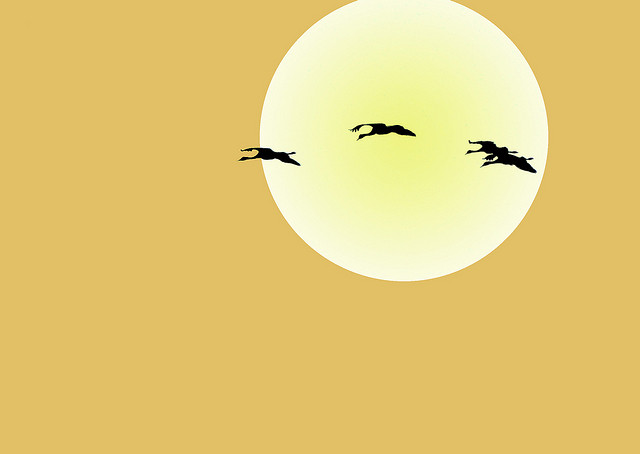What Have YOU Been Doing? by Tom Rich
As writers, I suspect we often have to answer that question, asked both by ourselves and other people, both implicitly and explicitly. For instance, my last Lies, Damned Lies, and Fiction Writing column was posted on, approximately, April 28, 1832. What's been going on since then?
Well, a variety of things, actually. I traveled to Alaska and saw the sun fail to set for two solid weeks. Alongside my dad, I used pieces of wood and simple hand tools to construct a series of shelves. I drank several cups of coffee and at least one glass of chocolate milk. I stood unscathed in the dying hearts of burning suns, and sailed my star-skiff on the space winds near Alpha Centauri. Briefly, I changed my name to John Cuthbert Powder and served as the United Kingdom's ambassador to Germany. During the Polar Vortex, I learned the tongue of the snow giants, and so the townsfolk were spared their depredations.
I also got married, which I want to make the subject of its own post, but probably ought to at least mention.
But another thing I did was read a great article in the Chronicle of Higher Education, and because we're on the internet you can just click right on whichever word Tim and Jen decided to make a link and go to it. Go have a look. I'll wait.
No, don't just skim the title and then come back, hoping I'll summarize. It's great stuff.
I developed a habit in graduate school, when I had a lot on my plate at once and was getting a bit overwhelmed. I used to sit down at my desk, scrawl some generic heading across a sheet of paper (like "Things!" or "Objects!"), and then say to myself "what am I doing, and why am I doing it?" Not a bad question to ask, but one that you might want to ask yourself silently if your officemates are in the room with you. Regardless, it's something I've been asking myself a good deal since the last Lies post, as I tried to write stories and also grew ever-more settled into a staggeringly routine office job.
Depending on your particular philosophical outlook, it can be very, very difficult to justify sitting around writing stories, especially if said philosophical outlook is less a full-fledged approach to life, informed by the best that has ever been thought and written, and more a panicked amalgam of half-remembered aphorisms at three in the morning. Suppose that your philosophy holds that service to others is the highest moral good. Stories don't exactly put food on people's tables, or stanch wounds, or resolve the socioeconomic injustice of your choice. Best to put up the pen. But suppose you narrow that philosophy down to being excellent to friends and family. Well, dear reader, you'll have a difficult time justifying spending hours and hours shooing them away from your desk while you compose your opus.
And so on; I wanted that paragraph to go on a bit longer, but managed to bore myself with it before writing it. The point being that it's very easy (if you happen to be me, at least) to talk yourself out of writing. The article--were you wondering if I'd ever return to it?--did a great job of talking me back into it, particularly in those concluding paragraphs.
What? You STILL didn't read it, hoping I'd summarize later on? Fine, but you're missing out. Here's that last paragraph:
"I can still see Thomas Greene, hands trembling slightly, face frowning with concentration, trying to get at that poem by Wyatt, trying to get it right, trying to meet the poet there in the seminar room, more than 400 years down the line, and give him what he’d earned. It was an example not only of how a critic treats a poet but also of how one human being can treat another. The learning, the integrity, the spirit of admiration and affection: Those were not common qualities; those were things to remember."
Trying to meet the poet there in the seminar room, more than 400 years down the line, and give him what he'd earned. What he'd earned. Selfishly, that's motivation to earn the kind of dedication, effort, intensity that Thomas Greene is displaying here, to have people love your work so much that, centuries later, they structure their lives around studying and talking about it. But it's also about flipping that paragraph on its head: if people likes Thomas Greene exist (and they do, and not only in the form of a tenured professor, or on the grounds of a university), if there are, indeed, people who will pour that much of themselves into books and literature and stories, if they'll fight for tenure and open used book stores and spend their free time converting classics into e-book format just so they have one more way of telling their friends, "Look, here, this is great, you've got to read it..."
If that's all true, it feels like it would be a disservice not to give them our best, to sit down at the desk and write the absolute best we can, and then throw it all out and write something even better. True, we're not talking about everyone here, or even a majority of people. But it's enough to think that maybe, from my desk here in Michigan, I can reach a hand out 400 years down the line and touch some somebody on the shoulder, to validate the amount of effort and energy they're willing to send back across those years to me. That, to me, seems worthy.




